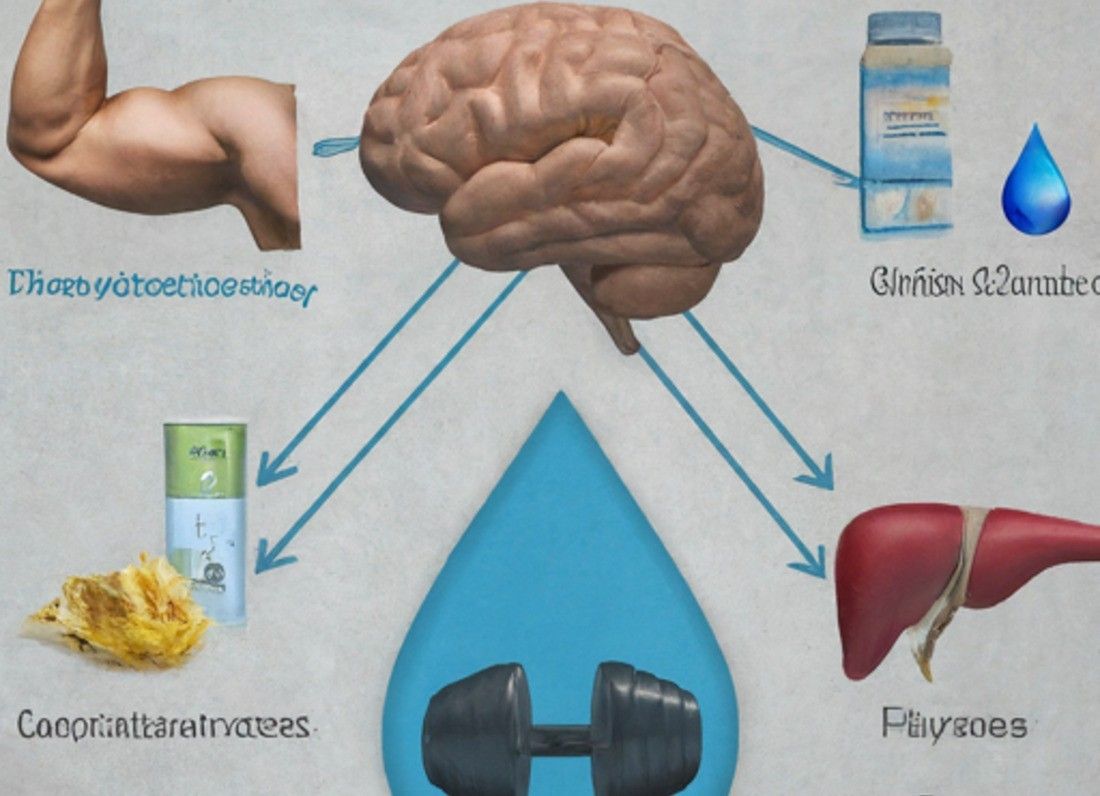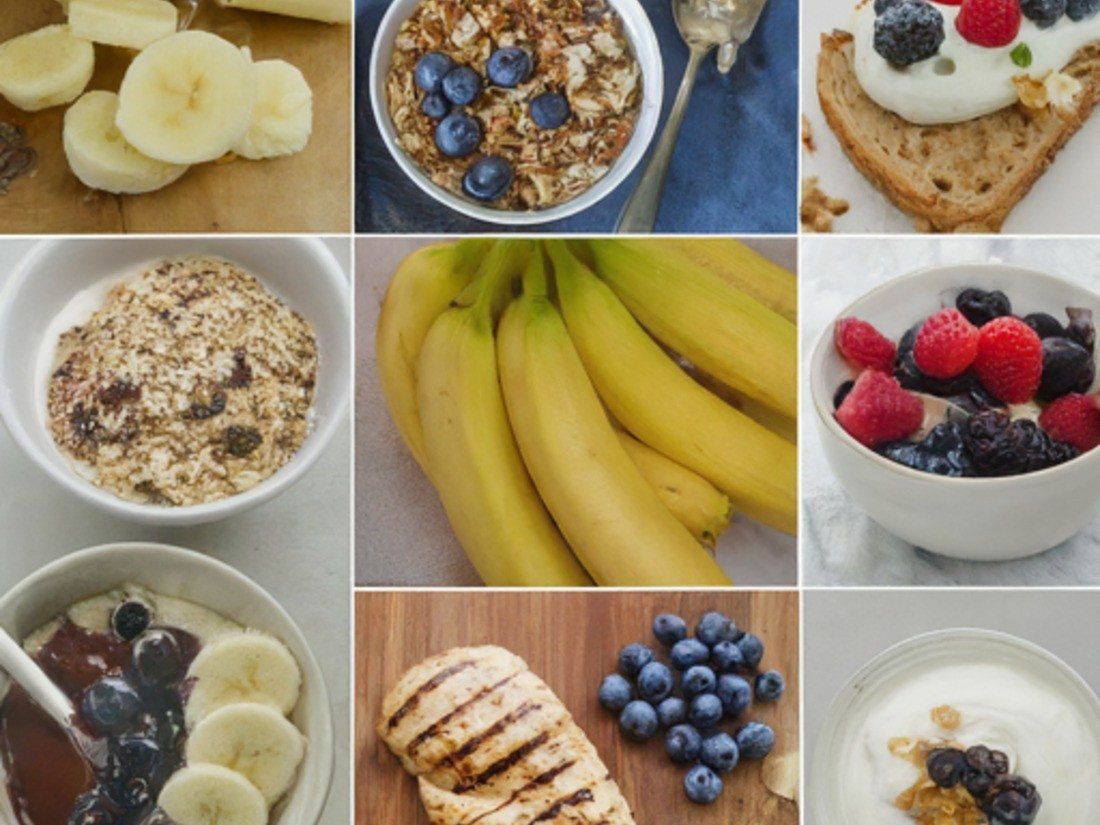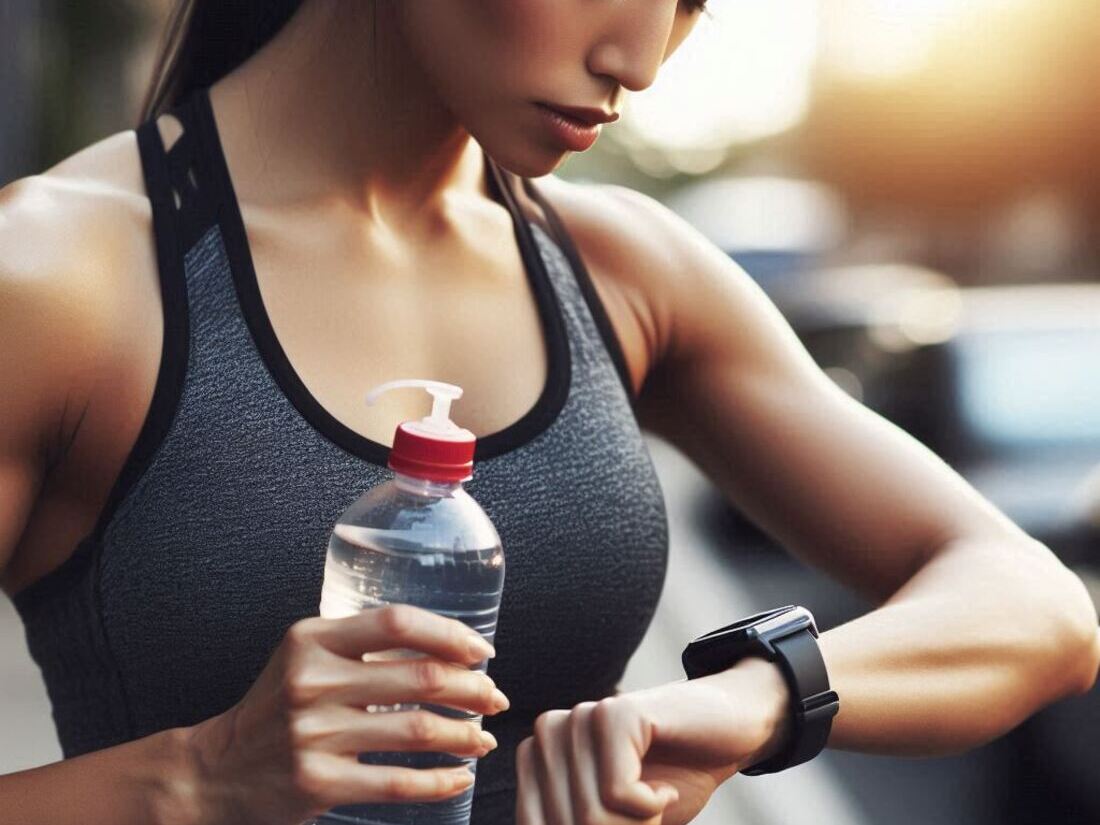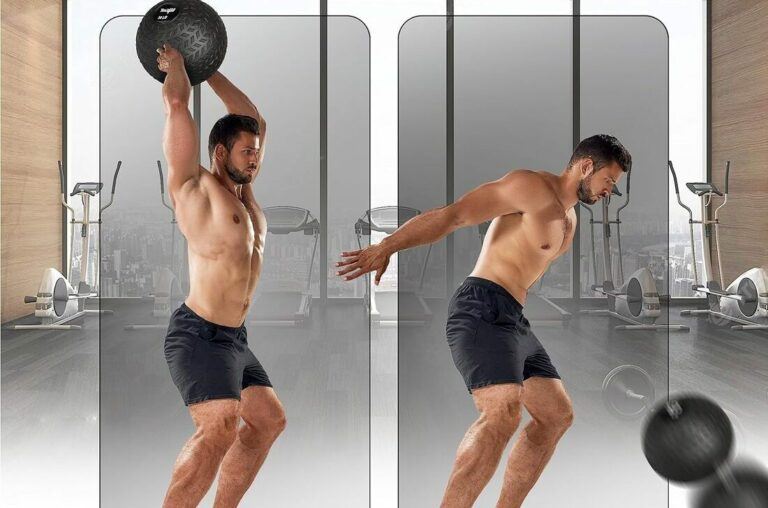You have meticulously planned your workout, honed your technique, and feel primed to push your limits.
But as you dive into your training session, your reflexes feel sluggish, your energy dips, and that peak performance you craved seems out of reach.
What went wrong?
Often, the culprit is a crucial factor often overlooked – pre-workout nutrition.

Just like your car needs the right fuel to run smoothly, your body requires specific nutrients to fire on all cylinders during exercise.
By strategically choosing what you eat before your workout, you can significantly enhance your reflexes, reaction times, and overall athletic performance.
Target Audience: This blog caters to athletes (both beginners and experienced), fitness enthusiasts, anyone seeking to optimize their reflexes, and those interested in the connection between nutrition and athletic performance.
We’ll delve into the science behind pre-workout nutrition, explore the best choices for fueling your reflexes, and provide practical tips to create a customized pre-workout meal plan.
The Science Behind Reflexive Fuel: How Food Impacts Your Reactions
Our reflexes are intricate pathways controlled by the nervous system.
When you encounter a stimulus (like a ball flying towards you), your brain sends signals through your nerves, prompting your muscles to react.
However, these pathways and muscles rely heavily on specific nutrients for optimal function.
Here’s a breakdown of how pre-workout nutrition impacts reflexes:
- Carbohydrates: Carbs provide readily available glucose, the primary fuel source for your brain and muscles. Adequate carb intake ensures your body has the energy to react quickly and sustain activity.
- Protein: Protein plays a vital role in muscle function and repair. Including protein in your pre-workout meal can help support muscle responsiveness and potentially improve reaction times.
- Electrolytes: Electrolytes, like sodium and potassium, are crucial for maintaining proper nerve function and muscle contractions. Deficiencies can lead to sluggish reflexes and decreased performance.
- Hydration: Dehydration significantly impacts cognitive function and reaction times. Staying hydrated before, during, and after your workout is essential for optimal reflex performance.

By ensuring you consume the right combination of these nutrients before training, you can prime your body for faster reactions, sharper focus, and more explosive movements.
Nutritional Powerhouse: The Best Pre-Workout Foods for Reflexive Performance
Now that we understand the science, let’s explore the powerhouses of pre-workout nutrition:
Carbohydrates:
- Fruits: Bananas, berries, and apples offer a readily available source of glucose and come packed with vitamins and antioxidants.
- Whole Grains: Whole-wheat toast, oatmeal, or brown rice provide sustained energy release and complex carbohydrates for long-lasting performance.
Protein:
- Greek Yogurt: Packed with protein and easily digestible, Greek yogurt provides essential amino acids for muscle support.
- Lean Protein Sources: Chicken breast, fish, or eggs offer protein for muscle function and repair, aiding in maintaining responsive reflexes.
Healthy Fats:
- Nuts and Nut Butters: A small handful of almonds, walnuts, or a spoonful of nut butter offers healthy fats for sustained energy and improved satiety.
Hydration:
- Water: Aim for at least 16-20 ounces of water 2-3 hours before your workout and sip water throughout your training session to stay adequately hydrated.

Sample Pre-Workout Meal Plans:
To help you get started, consider these sample meal plans based on your workout timeframe:
| Pre-Workout Window | Meal Option | Portion Size | Notes |
|---|---|---|---|
| 1-2 Hours Before: | Whole-wheat toast with banana and almond butter | 1 slice whole-wheat toast, 1/2 banana, 1 tbsp almond butter | Provides complex carbs, protein, and healthy fats. |
| Greek yogurt with berries and granola | 1 cup Greek yogurt, 1/2 cup berries, 1/4 cup granola | Offers protein, healthy fats, antioxidants, and some complex carbs. | |
| Chicken breast with brown rice and vegetables | 4 oz chicken breast, 1/2 cup brown rice, mixed vegetables | Lean protein source for muscle support, complex carbs for sustained energy, and vitamins/minerals from vegetables. (Vegetarian option: Substitute chicken with lentils or tofu) | |
| 30-60 Minutes Before: | Fruit smoothie with protein powder and spinach | 1 cup fruit (berries, banana), 1 scoop protein powder, 1/2 cup spinach, water or milk | Provides readily available carbs, protein for muscle support, and additional nutrients from spinach. |
| Banana with peanut butter | 1 banana, 2 tbsp peanut butter | Easy and quick option for readily available carbs and protein. |
Remember to adjust the portion sizes based on your individual needs and the intensity/duration of your workout.
Optimizing Your Pre-Workout Nutrition: Key Tips and Considerations
Here are some additional tips to refine your pre-workout nutrition strategy for peak reflexive performance:
- Experiment and Find What Works for You: Not everyone reacts the same to different foods. Experiment with different pre-workout meals and see what fuels your body and reflexes best.
- Consider Your Workout Intensity: The intensity and duration of your workout influence your pre-workout needs. Opt for larger meals for longer, more intense sessions and lighter snacks for shorter workouts.
- Avoid Digestive Issues: Stay away from greasy, heavy foods or foods high in fiber before your workout to prevent stomach discomfort that can disrupt your performance.
- Don’t Skip Meals: Skipping meals before your workout can lead to low blood sugar and sluggish reflexes. Aim to eat a pre-workout meal even if your training session is early in the morning.
- Time Your Pre-Workout Meal: Allow enough time for digestion. Ideally, eat your pre-workout meal 1-2 hours before your workout for optimal results. Lighter snacks can be consumed closer to your training session (around 30-60 minutes before).
- Stay Hydrated Throughout the Day: Proper hydration isn’t just about the pre-workout window. Aim to drink water consistently throughout the day to maintain optimal fluid levels for peak performance.
- Consider Pre-Workout Supplements (Optional): Consult with a registered dietitian or sports nutritionist to discuss if pre-workout supplements like creatine or caffeine may be beneficial for your specific needs and training goals.

By following these tips and personalizing your pre-workout nutrition, you can create a strategy that optimizes your reflexes, enhances your focus, and fuels you for peak performance during any training session.
Key Takeaways: Power Up Your Reflexes with Pre-Workout Nutrition
- Pre-workout nutrition plays a crucial role in optimizing reflexes and athletic performance.
- Consuming adequate carbohydrates, protein, electrolytes, and staying hydrated are essential for fueling your body and reflexes.
- Choose foods that provide readily available energy, support muscle function, and maintain proper nerve function.
- Experiment with different pre-workout meals and timing to discover what works best for your body and training intensity.
- Consider seeking guidance from a registered dietitian or sports nutritionist for personalized advice on pre-workout nutrition and supplements.
FAQs: Fueling Your Reflexive Advantage
Here are some frequently asked questions regarding pre-workout nutrition for optimal reflexes:
- How much water should I drink before a workout?
Aim for at least 16-20 ounces of water 2-3 hours before your workout. Sip water throughout your training session to stay hydrated.
- What if I don’t have time for a full pre-workout meal?
If you’re short on time, opt for a quick and easily digestible snack like a banana with peanut butter or a fruit smoothie with protein powder.
- Are sugary drinks a good pre-workout option?
Sugary drinks may provide a quick energy boost, but they can also lead to a crash later in your workout. Opt for complex carbohydrates and protein for sustained energy.
- Can I eat right before my workout?
It’s generally best to avoid heavy meals right before your workout. Allow at least 1-2 hours for digestion to prevent stomach discomfort.
- What are some good pre-workout supplements for reflexes?
While research on specific supplements for reflexes is ongoing, some athletes find creatine or caffeine beneficial for focus and energy.
Consult a registered dietitian or sports nutritionist for personalized advice.
Conclusion: Eat Smart, React Faster, Dominate Your Game
By strategically fueling your body with the right nutrients before your workout, you can unlock a level of reflexive performance you never thought possible.
Remember, you are what you eat, and pre-workout nutrition plays a pivotal role in sharpening your reflexes, enhancing your focus, and propelling you towards athletic success.
So, the next time you step onto the field or into the gym, make sure you’re armed with the right pre-workout fuel. Your reflexes and overall performance will thank you for it!
This blog post complements our previous guide on the importance of reflexes for athletes by providing actionable strategies for advanced reflex training used by elite athletes.
Citation 1
- Title: The Role of Dietary Carbohydrates in Muscle Glycogen Resynthesis After Strenuous Running
- Authors: David L. Costill, W. M. Sherman, W. J. Fink, C. Maresh, M. Witten, and J. M. Miller
- Link: The Role of Dietary Carbohydrates in Muscle Glycogen Resynthesis After Strenuous Running1
Citation 2
- Title: Dietary Nitrate Supplementation Improves Sprint and High-Intensity Intermittent Running Performance
- Authors: Christopher Thompson, Anni Vanhatalo, Harry Jell, Jonathan Fulford, James Carter, Lara Nyman, Stephen J. Bailey, Andrew M. Jones
- Link: Dietary Nitrate Supplementation Improves Sprint and High-Intensity Intermittent Running Performance



